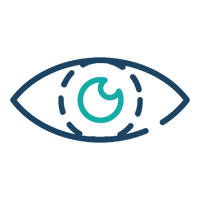While it's important to seek professional help from an eye specialist if you're experiencing double vision, there are a few natural ways that might help alleviate symptoms. Practicing eye exercises that enhance coordination and strengthen the eye muscles can be beneficial. Additionally, good nutrition, hydration, and maintaining a healthy lifestyle can contribute positively. However, these methods should complement, not replace, professional treatment, and it's always advisable to consult with an eye specialist about your symptoms.













